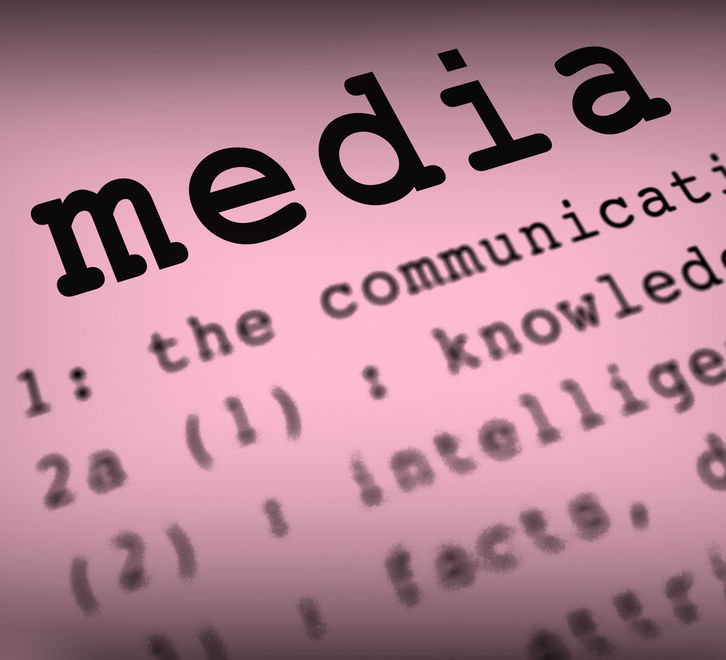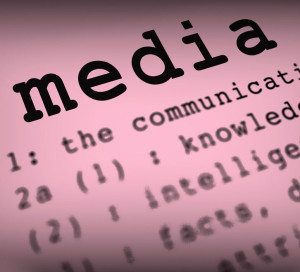
by Dan | Feb 13, 2019 | Uncategorized
 What’s the definition of religion? While your first response may be something like “a belief in a god,” the answer is much more complicated when it comes to freedom of religion protections and churches’ tax-exemption statuses in the U.S. In other words, the actual definition of religion (a system of faith and worship) is so broad that almost anything could technically be considered a “religion,” rather than limiting it to the major faith systems of Christianity, Islam, Judaism, Buddhism, etc.
What’s the definition of religion? While your first response may be something like “a belief in a god,” the answer is much more complicated when it comes to freedom of religion protections and churches’ tax-exemption statuses in the U.S. In other words, the actual definition of religion (a system of faith and worship) is so broad that almost anything could technically be considered a “religion,” rather than limiting it to the major faith systems of Christianity, Islam, Judaism, Buddhism, etc.
Regardless of your own religious or nonreligious beliefs, have you ever wondered why churches receive tax-exemption status in the U.S. and what organizations qualify for it, per the IRS guidelines? Here’s a brief overview of the current interplay between religion and taxation in the United States:
Tax-Exemption for Religious Institutions
IRS regulations pertaining to churches and religious organizations fall under the umbrella of 501(c)(3). This means these groups are exempt from having to pay local, state and federal taxes, which could add $83.5 billion to government revenues in the U.S. if churches were required to pay taxes on donations and other forms of income.
Churches also do not have to file Form 990, which other charities are required to fill out to remain transparent about their donations and financial statements.
Pushing the Boundaries?
What is the bright line between a regular tax-exempt church and something that operates similarly to a church but doesn’t seem to be a traditional religious institution? For example, the First Church of Cannabis – which considers marijuana to be a sacrament that heals suffering and brings people closer together – was granted tax-exemption status by the IRS in 2015. Meanwhile the ever-controversial organization of Scientology is considered tax-exempt, though it has lost its exemption in the past and might lose it again in the future.
Then there’s the story of a Florida “church” called The Life Center that turned out to be a rowdy nightclub (which lost its local tax-exempt status but maintained its state tax-exemption for some time). With these major examples of non-traditional notions of what it means to be a religious organization, how does the IRS decide whether or not to grant tax-exemption without demonstrating bias in favor or against certain so-called religious groups?
Legitimacy Issues and the First Amendment
As Forbes pointed out, the IRS typically examines the following factors to decide if a church should be granted tax-exemption status:
“Distinct legal existence; Recognized creed and form of worship; Definite and distinct ecclesiastical government; Formal code of doctrine and discipline; Distinct religious history; Membership not associated with any other church or denomination; Organization of ordained ministers; Ordained ministers selected after completing prescribed study; Literature of its own; Established places of worship; Regular congregations; Regular religious services; Sunday schools for religious instruction of the young; and Schools for preparing its members.”
The problem here is that the Constitution’s freedom of religion guarantees in the First Amendment make it difficult for the government to classify some religious groups as legitimate while denying other groups’ legitimacy. Moving forward, what should the IRS do? Should they adhere to the First Amendment’s freedom of religion guarantees by approving tax exemptions for unusual organizations that claim to be religions? Or should they revoke tax-exemption status for all churches in the U.S. to improve fairness among all religious organizations?

by Dan | Jan 23, 2019 | Uncategorized
 Colin Kaepernick may have sparked the debate over professional athletes’ access to freedom of speech and expression protections, but controversies about athletes and First Amendment rights involve so much more than kneeling during the national anthem.
Colin Kaepernick may have sparked the debate over professional athletes’ access to freedom of speech and expression protections, but controversies about athletes and First Amendment rights involve so much more than kneeling during the national anthem.
Whether you enjoy playing sports or watching sports, here’s a brief overview of the state of First Amendment rights for fans and players in the American sporting industry:
Major League Player Protests
As ESPN points out, there is no universal policy among major sports leagues when it comes to players’ conduct during the national anthem. While the new NFL policy that players and coaches must stand during the national anthem mirrors NBA and WNBA policies, the MLB and NCAA have no official policies on the matter. The NHL’s Player’s Association even went as far as explicitly confirming support for players who would like to engage in “peaceful protest” during the national anthem. Meanwhile, Major League Soccer reportedly “encourages” players to stand during the national anthem, but it does not require them to do so.
If the First Amendment primarily protects citizens against any wrongful infringement on their speech/expression by the government, should it also protect professional players that work for nongovernmental sports organizations? The debate will likely continue for many years to come.
Paid Sponsorships for College Athletic Departments
College sports are already under fire for not paying their players (beyond covering tuition/fees in most cases), while their events make millions of dollars thanks to these hard-working student-athletes. Another issue confronting college athletic departments these days is paid sponsorships, which involves corporations sponsoring college teams by offering funds, gear and other incentives in exchange for advertising opportunities.
Since public university athletic directors are technically government employees, this raises the issue of potential First Amendment violations when a director accepts some corporate sponsorships while rejecting others. Should athletic departments be able to freely deny certain corporate sponsorships and accept others, or does this represent a Constitutional violation? Experts are still divided, so this will also remain a hotly contested issue in the world of college sports for the indefinite future.
Fan Heckling = Protected Speech?
A relatively newer phenomenon related to the First Amendment and sporting events is fan heckling. In 2018, New York Giants fans were ousted and arrested for heckling, which led them to sue, claiming their First Amendment rights were violated.
In the international arena, fan heckling has typically resulted in monetary penalties for teams, such as FIFA fining Mexico in the 2018 World Cup after Mexico’s fans repeatedly hurled homophobic slurs at the goalie during their match against Germany. But when it comes to American sports – where legal jurisdiction is also more clear-cut than simply letting FIFA handle matters – should fans be penalized for heckling and poor conduct, or is this merely disrespectful behavior that should nevertheless be protected by the First Amendment?

by | Jan 9, 2019 | Uncategorized
 It’s a fair question: who, exactly qualifies as a “journalist” these days? Can just anyone be considered a journalist, or are there certain educational and professional requirements involved? Do “citizen journalists” — everyday folks equipped with smart phones who are in the right place at the right time —count as journalists?
It’s a fair question: who, exactly qualifies as a “journalist” these days? Can just anyone be considered a journalist, or are there certain educational and professional requirements involved? Do “citizen journalists” — everyday folks equipped with smart phones who are in the right place at the right time —count as journalists?
As Professor William E. Lee pointed out, “Anyone can be a journalist and they don’t need an affiliation with an established outlet…it’s increasingly important that unaffiliated journalists know they have the same legal protection as a reporter at a newspaper. It’s significant for the development of alternative forms of expression that do not fit neatly in our traditional concepts of speech or press.”
We could argue about who is and who isn’t a journalist all day, but there’s a bigger problem at hand: How does the First Amendment currently protect so-called “citizen journalists,” and what can be done to improve their free press freedoms? Let’s examine some of the concerns we have about citizen journalism:
Prosecuting Citizen Journalists
In 2017, Georgia citizen journalist Nydia Tisdale was convicted of a misdemeanor charge related to obstruction while filming a 2014 campaign rally that was publicly advertised but located on private property. When campaign organizers demanded she stop filming the event, Tisdale refused and was forcibly removed from the property. While she was acquitted of more serious felony charges, even the misdemeanor conviction could be a serious blow to citizen journalists’ rights around the country.
Around the world, citizen journalists are under attack. Many politicians and members of the public claim they’re not “real” journalists and therefore shouldn’t receive the same rights and protections as reporters from established media organizations. Many citizen journalists have faced threats, harassment and even arrest, as in the case of Priscilla Villarreal.
Are these incidents proof that the First Amendment rights of these citizen journalists are being violated, or are these incidents proof that citizen journalists do not and/or should not receive the same treatment as professional journalists associated with established news outlets? Perhaps only time (and many more legal battles) will give us any clarity on these issues.
Freedom of Expression Alternative?
As UNESCO points out, citizen journalists ought to receive similar protections as “established” and “professional” journalists in order to ensure freedom of expression for all citizens. Thanks to online publishing platforms like WordPress, Tumblr, YouTube and other social media channels, there are far fewer restrictions and obstacles preventing everyday people from reporting on local events, video-taping law enforcement and broadcasting images, audio and video about natural disasters happening in their communities.
Since we are increasingly reliant on citizen journalists to cover small and major events alike, they certainly should receive the same press freedom protections as professional journalists. The question that remains now is: How can we ensure citizen journalists, who may not have media badges and credentials and expensive-looking equipment, are given equal access to reporting opportunities as their professional counterparts?

by Dan | Dec 26, 2018 | Uncategorized
 TIME‘s 2018 “person of the year” is more than just one single individual. In fact, there are several people of the year for 2018; TIME has called this group “The Guardians” to signify the importance of journalists in their never-ending pursuits to uphold democratic ideals of public trust and governmental transparency. “The Guardians” include:
TIME‘s 2018 “person of the year” is more than just one single individual. In fact, there are several people of the year for 2018; TIME has called this group “The Guardians” to signify the importance of journalists in their never-ending pursuits to uphold democratic ideals of public trust and governmental transparency. “The Guardians” include:
- The Washington Post reporter Jamal Khashoggi, who was violently killed in his own country’s embassy in Turkey in October
- Journalists working for the Capital in Annapolis, Maryland, where 5 of their colleagues were shot and killed in their own newsroom back in June
- Maria Ressa, who founded the Rappler online news site in the Philippines and covered President Rodrigo Duterte’s extrajudicial killings in the war against drugs (she’s currently awaiting sentencing that could imprison her for up to 10 years)
- Reuters reporters Kyaw Soe Oo and Wa Lone, who were sentenced to 7 years in prison for covering the deaths of 10 Rohingya Muslims in Myanmar
As the TIME article aptly noted, these “Guardians” are just some of the many journalists who faced harassment and violence in the line of reporting duty in 2018. Their contributions, their persistence, their sacrifices will not be forgotten, though powerful, authoritarian rulers and anti-free press laws may temporarily prevail in many countries, including our very own “Land of the Free,” the United States of America.
TIME chose “The Guardians” as their persons of the year because this decision sends a clear message to both fascist dictatorships and press-hating leaders of the free world alike: the public needs journalists. Without the dedicated reports of journalists willing to risk their lives to expose political corruption and tyrannical, anti-democratic leadership practices, how would the public ever know whether its elected leaders are truly doing their jobs and serving the will of the voters, first and foremost?
In addition to increasing levels of physical violence against journalists, public trust in the press has been plummeting. This could be due to a variety of factors, though the rapid and wide circulation of “fake news” rhetoric is arguably a major cause of public mistrust in news organizations. Psychological research has shown that the average human tends to engage in something called “confirmation bias,” which involves the acceptance of any information that conforms with our beliefs and the rejection of information that contradicts our beliefs (regardless of the actual validity of that information).
Journalists are absolutely essential for clarifying public perceptions about ongoing current events and political leaders. While there is no such thing as 100% pure objectivity, the phenomenon of “media bias” is more fiction than fact, despite what politicians who disagree with journalists might say about it.
TIME could not have picked a more important “person(s) of the year” for 2018. We, as members of American society and human beings in general, need to do more to protect those who hold power to account. We can start by refusing to believe or share fake news, demanding justice for journalists facing harassment and violence, and finally: by supporting news organizations in their relentless quest to equip the public with the knowledge and tools we need to remain a free and democratic society for many decades to come.

by Dan | Dec 13, 2018 | Uncategorized
 The dictionary definition of civic-mindedness refers to the “actions, activities or individuals that are motivated by or that show concern for the public good or humanity as a whole.” In other words, a civic-minded person is willing to participate in activities that benefit their communities, such as volunteering, donating, and/or speaking out about issues and causes they’re passionate about.
The dictionary definition of civic-mindedness refers to the “actions, activities or individuals that are motivated by or that show concern for the public good or humanity as a whole.” In other words, a civic-minded person is willing to participate in activities that benefit their communities, such as volunteering, donating, and/or speaking out about issues and causes they’re passionate about.
After an incredibly divisive year of hyper-polarized political discourse, skyrocketing rates of harassment and violence against journalists, and the distortion of reality through “fake news” and inflammatory rhetoric, we’d like to ask all First Amendment Voice members and supporters to join us in rebuilding a sense of national unity through small acts of civic-minded kindness in their communities. If you’re onboard with making America kind again, then here are some of the many ways you can be more civic-minded in the new year:
Use Your Voice
As we discussed at our National Symposium in 2018, your voice matters! Whether this involves spreading the word about an important cause in your community or gathering support for political organizations via social media, there is no limit on the number of ways you can use your voice as a platform promoting respect and kindness towards all Americans.
Perhaps you could also constructively engage in controversial discussions by researching different perspectives from credible sources beforehand, learning more about logical fallacies, and being willing to listen to arguments and individuals you disagree with, rather than talking over them or refusing to engage simply because you have different perspectives.
Volunteer for a Cause You Care About
What are you truly passionate about? For instance, are you concerned about the state of press freedoms in the U.S. and abroad? Are you worried about the future of freedom of expression online? Or what about other causes with significant consequences (and public controversies), such as climate change, gun control, public health, and affordable housing?
No matter what your favorite causes may be, there are always opportunities for civic-minded individuals to get more involved in advocacy efforts through volunteering. If you’ve volunteered on and off for an organization or two in the past, then make this the year in which you commit to regularly volunteering for a nonprofit that aligns with your activist goals and ideals for American society.
Donate to Those Who Truly Need It
If you’re too busy with work and family obligations to volunteer more often, then consider contributing financially instead. There are so many worthy causes that deserve more funding to continue their ongoing efforts to improve the lives of less-fortunate individuals in your local community, as well as helping certain groups on the national level.
If First Amendment freedoms are also important to you, then consider donating to First Amendment Voice to help us protect our most treasured Constitutional rights in 2019 and beyond.

by Dan | Nov 28, 2018 | Uncategorized
 How many options do you have when it comes to choosing an Internet service provider (ISP) for your home? If you’re like millions of Americans, you might only have access to one ISP. Or perhaps you have the option of 2 ISPs offering slow Internet speeds; the FCC’s own research has found that 55% of developed census blocks have no providers offering 100 Mbps internet speeds.
How many options do you have when it comes to choosing an Internet service provider (ISP) for your home? If you’re like millions of Americans, you might only have access to one ISP. Or perhaps you have the option of 2 ISPs offering slow Internet speeds; the FCC’s own research has found that 55% of developed census blocks have no providers offering 100 Mbps internet speeds.
If you’ve followed the debate over net neutrality laws over the past year, then you likely already know that ISPs and the services they provide consumers are deeply intertwined with the First Amendment. What you might not know is that many of the prominent arguments coming out recently are in favor of the Internet service providers’ free speech rights, which are often viewed as conflicting with citizens’ free speech rights.
To give you a refresher on the current situation, let’s examine how the First Amendment impacts business operations and public perceptions surrounding ISPs:
ISP Monopolies
As mentioned previously, millions of Americans only have access to one ISP in their area. This effectively creates a monopoly, as Internet access has become an essential household necessity, and only one company is available to provide that service in countless communities across the U.S.
Why is a monopoly necessarily bad? ISPs have a long history of attempting to block consumers from accessing certain websites and slowing down Internet speeds when consumers try streaming video content from services like Netflix, Hulu and HBO.
Net neutrality laws classified Internet services as Title II public utilities and forbade ISPs from prioritizing certain websites over others. Without those laws, consumers are increasingly unable to readily access content from their favorite websites because ISPs are now in control over how fast webpages load (if they load at all). Prominent individuals like Justice Kavanaugh have consistently argued against net neutrality on the basis that it presumably violates ISPs rights to freedom of expression, but what about consumers’ First Amendment rights?
Community-Owned ISPs
The battle of net neutrality may not end any time soon, but there’s another battle happening in the world of American ISPs right now: The rise of government-owned and operated ISPs. The FCC commissioner recently argued that community-owned broadband services represent a threat to free speech rights in the U.S., but several research studies have shown that community broadband is typically cheaper and more reliable than commercial ISPs, so how is this a loss for consumers?
The debates over net neutrality and community vs. commercial ISPs are far from over, but at the end of the day it’s important to ask ourselves this crucial question: When in conflict, should we be more concerned with for-profit Internet service providers’ rights to freedom of speech or American citizens/Internet users’ rights to freedom of speech?

 What’s the definition of religion? While your first response may be something like “a belief in a god,” the answer is much more complicated when it comes to freedom of religion protections and churches’ tax-exemption statuses in the U.S. In other words, the actual definition of religion (a system of faith and worship) is so broad that almost anything could technically be considered a “religion,” rather than limiting it to the major faith systems of Christianity, Islam, Judaism, Buddhism, etc.
What’s the definition of religion? While your first response may be something like “a belief in a god,” the answer is much more complicated when it comes to freedom of religion protections and churches’ tax-exemption statuses in the U.S. In other words, the actual definition of religion (a system of faith and worship) is so broad that almost anything could technically be considered a “religion,” rather than limiting it to the major faith systems of Christianity, Islam, Judaism, Buddhism, etc.

 Colin Kaepernick may have sparked the debate over professional athletes’ access to freedom of speech and expression protections, but controversies about athletes and First Amendment rights involve so much more than kneeling during the national anthem.
Colin Kaepernick may have sparked the debate over professional athletes’ access to freedom of speech and expression protections, but controversies about athletes and First Amendment rights involve so much more than kneeling during the national anthem.
 It’s a fair question: who, exactly qualifies as a “journalist” these days? Can just anyone be considered a journalist, or are there certain educational and professional requirements involved? Do “citizen journalists” — everyday folks equipped with smart phones who are in the right place at the right time —count as journalists?
It’s a fair question: who, exactly qualifies as a “journalist” these days? Can just anyone be considered a journalist, or are there certain educational and professional requirements involved? Do “citizen journalists” — everyday folks equipped with smart phones who are in the right place at the right time —count as journalists?
 TIME‘s 2018 “person of the year” is more than just one single individual. In fact, there are several people of the year for 2018; TIME has called this group “
TIME‘s 2018 “person of the year” is more than just one single individual. In fact, there are several people of the year for 2018; TIME has called this group “
 The
The 
 How many options do you have when it comes to choosing an Internet service provider (ISP) for your home? If you’re like millions of Americans, you might only have
How many options do you have when it comes to choosing an Internet service provider (ISP) for your home? If you’re like millions of Americans, you might only have 



